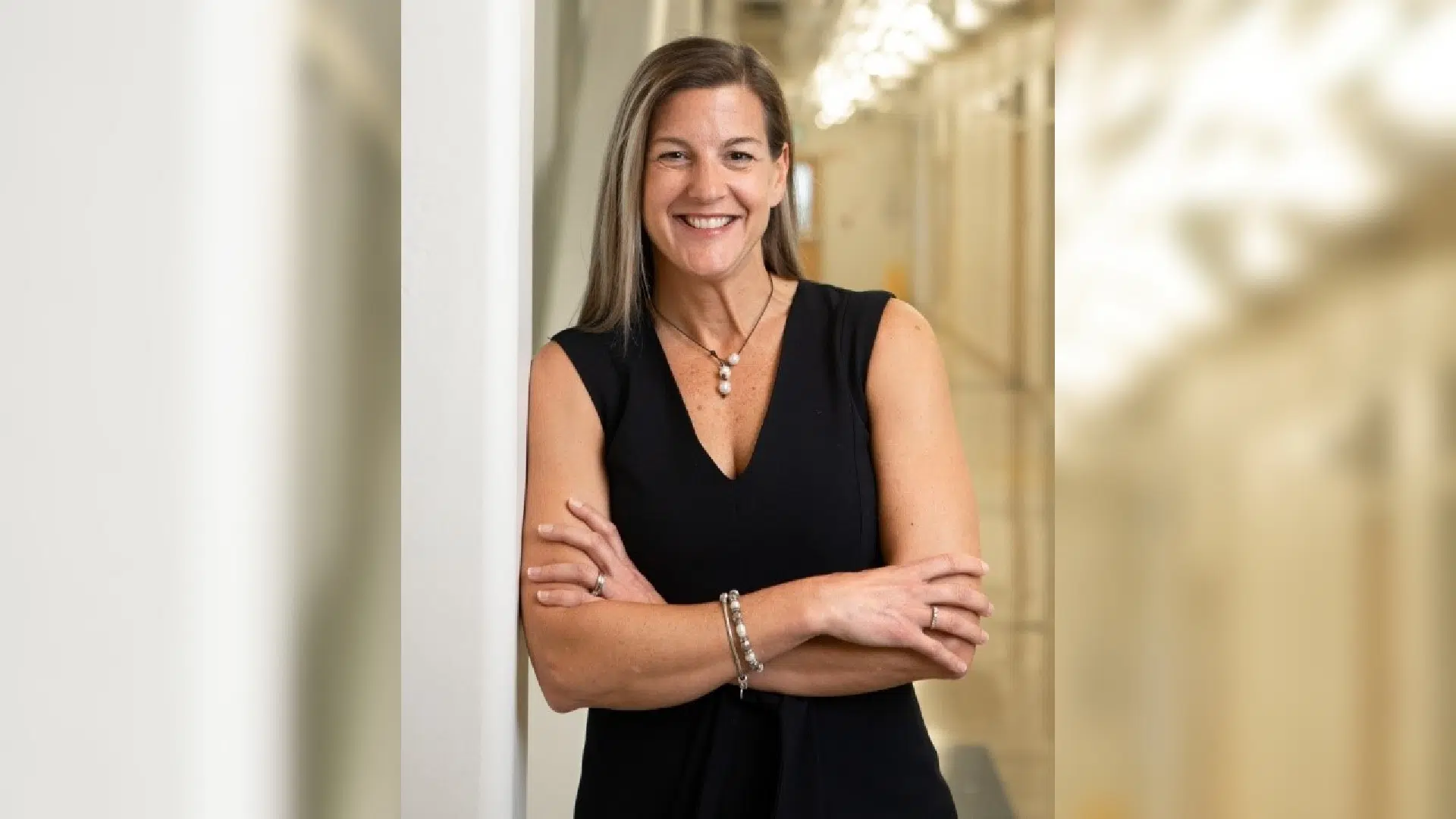Mary Butler will serve a second five-year term as president and CEO of New Brunswick Community College.
The college’s board of governors announced her contract extension in a news release in March.
In an interview, Butler said she is thankful to have the chance to continue her work for another five years.
“I’m surrounded by passionate colleagues who believe wholeheartedly and very deep down in the work that they do every day to provide education and training throughout the province,” said Butler.
The president and CEO said one of the highlights of her first five years has been the college’s ability to welcome more students.
With New Brunswick having one of the lowest post-secondary attainment rates in the country, Butler said beginning to move the needle on that really excites them.
“We know the power of education to transform lives, to provide people with more opportunities, more secure work, better health, social and financial outcomes for them and their families and their networks,” she said.
Butler said NBCC’s $16-million Going Beyond capital campaign was an “exhilarating ride” and a “whole new foray for them.
The college ended up raising a total of $21.8 million to improve connectivity, modernize learning environments, and reduce barriers to post-secondary education.
While the college has seen a lot of success over the past five years, the president and CEO acknowledged there have also been some challenges.
Butler said the COVID-19 pandemic turned everything about the way they do business upside down and inside out overnight.
“Our team was just determined to not let any of our students fall through the cracks and to continue to serve them well. So while it was a huge challenge, again, it’s something that we overcame with pride,” said Butler.
She also referenced the recent federal policy change of international student visa caps.
Looking ahead to the next five years, Butler said one of her focuses continues to be reducing barriers to post-secondary education.
“We have the largest percentage of jobs at risk of disruption due to automation and technological advancement,” said the president and CEO.
“And we’ve seen a big shift. If you look at the New Brunswick jobs market, then the number and percentage of jobs requiring some form of post-secondary education is increasing while those requiring high school or less is decreasing. So we can’t afford to leave people behind.”








